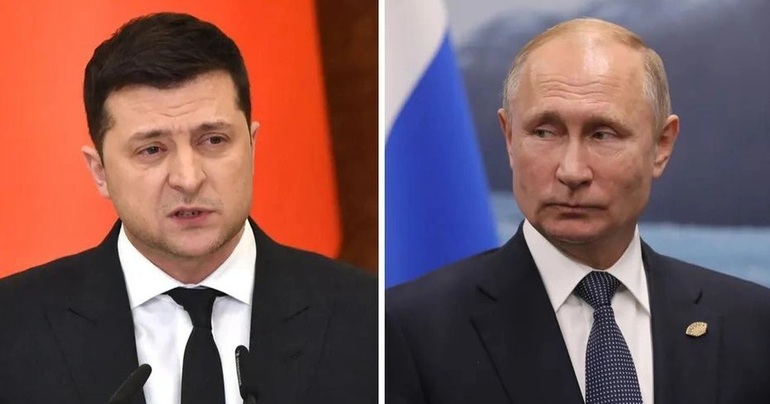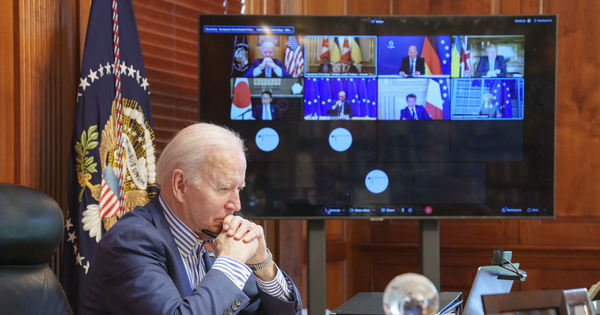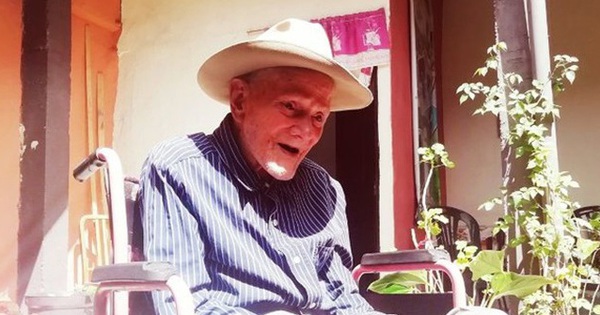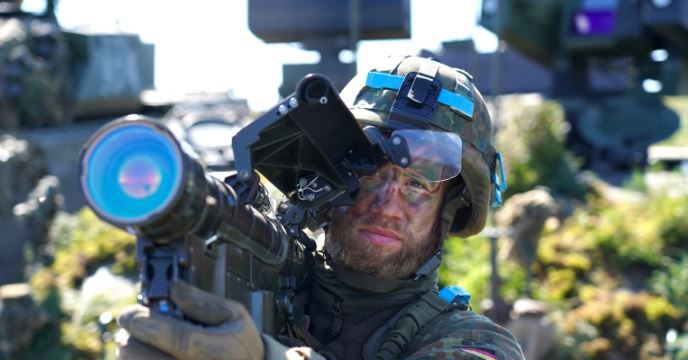The “knots” that make Russia-Ukraine negotiations still deadlocked
(Dan Tri) – Russia and Ukraine have undergone many rounds of negotiations to find a diplomatic solution to the war. However, the two sides still have differences that prevent this process from making any significant progress.

Ukrainian President Volodymyr Zelensky and Russian President Vladimir Putin (Photo: Reuters).
On February 24, Russia launched a special operation in Ukraine with the goal of de- military neighboring country. After about a month, the two sides have sat down at the negotiating table in both face-to-face and online form, but so far have not been able to agree on important issues.
Although Turkey, which is actively mediating, has revealed that both Russia and Ukraine have come together on a number of key issues, in fact, there is no official information that shows that the two sides have come together. countries had a common voice regarding measures to end hostilities.
According to Reuters, there is more than one problem “blocking” the two sides to find a final solution. Russia remains steadfast in its aim despite the punitive pressure from the West. Meanwhile, Ukraine, with support from the US and its allies, also shows a tough stance on the negotiating table on issues that it considers uncompromising.
Territorial problem
The most difficult issue in the negotiation is territory. Russia annexed Crimea in 2014 and on February 21, Moscow recognized the independence of the two breakaway regions of Donetsk and Lugansk in Eastern Ukraine.
Since the start of hostilities, Russian forces have taken control of a swath of territory on the southern slopes of Ukraine, northern Crimea, the territory surrounding the breakaway regions, as well as territory to the east and west of Kiev.
Ukraine says it will never recognize Russia’s annexation of Crimea or the independence of the two regions in the Donbass.
“Our position is unchanged,” said negotiator for the Ukrainian delegation Mykhailo Podolyak. He said that Ukraine is determined to achieve the goal of a ceasefire, a withdrawal of Russian troops and security guarantees for the Kiev side.
For Russia, Ukraine’s recognition of Moscow’s annexation of Crimea and recognition of the independence of the two breakaway regions in the Donbass is equally important and is the goal set on the negotiating table.
The tension between the two sides over the preconditions on the negotiating table has made the discussions so far unable to reach a common conclusion.
“Neutralization of Ukraine”
In addition to the territorial issue, Russia also made clear its desire for Ukraine to become a neutral state. Russia’s chief negotiator Vladimir Medinsky said Ukraine had suggested that it could be as neutral as Austria or Sweden but with its own military. However, Kiev has denied this information.
It is not clear what level of neutrality Russia and Ukraine want. In fact, after the collapse of the Soviet Union, the Ukrainian Parliament in the 1990 Declaration of State Sovereignty stated its desire to become a permanent neutral state. However, after a few decades, Ukraine revised its constitution and added a goal of joining NATO – which made Russia concerned about security risks at its doorstep.
Medinsky said that both Russia and Ukraine discussed the maximum size of the Kiev army in the future if a peace agreement is signed. Meanwhile, Russian President Vladimir Putin said he wanted a written commitment that Ukraine would never join NATO. Ukraine’s President Volodymyr Zelensky admitted that the country will not be able to join NATO anytime soon because the alliance will not accept Kiev’s application.
With the issue of neutrality of Ukraine, the two sides have not yet been able to find a common voice, although experts say that this may be one of the content that can be compromised.
The interests of the Russian-speaking community
Another important issue in the negotiations between Moscow and Kiev is the interests of Russians in Ukraine, specifically the issue of Russian and Russian speakers.
In 2019, Ukraine passed a law granting special status to the Ukrainian language. This law obliges all citizens to know the Ukrainian language and makes it mandatory for civil servants, soldiers, doctors and teachers. It has become a sensitive issue between the two countries and has prompted criticism from Russia that the law will “only deepen divisions in Ukrainian society”.
On the other hand, Russia has also repeatedly accused radical nationalist groups with neo-fascist ideology in Ukraine of deepening ethnic conflicts. Moscow accuses these forces of anti-Russian behavior and violence against the Russian-speaking community in Ukraine. This is one of the reasons why Russia decided to act on February 24.
The issue of rights for people of Russian origin and Russian-speaking people in Ukraine is also said to be a factor that affects the negotiations between the two sides, according to the report. Reuters.
at Blogtuan.info – Source: dantri.com.vn – Read the original article here



